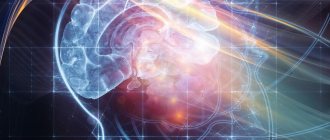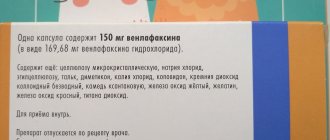"Citramon": composition and other characteristics
"Citramon" is an anesthetic that prevents inflammatory processes and also has an antipyretic effect. The only form of release is tablets. They are packaged in cardboard packages, each containing 10 or 6 pieces.
The active ingredient is acetylsalicylic acid (240 mg per tablet). The following are used as auxiliary components:
- citric acid (20 mg);
- phenacetin (180 mg);
- caffeine (20 mg).
The composition and dosage of components may vary significantly, as determined by manufacturers. The features of the tablet may also differ. For example, “Citramon Ultra”, unlike the classic “Citramon”, is a drug with film-coated tablets. This makes oral administration easier.
The effect on the body is complex:
- Acetylsalicylic acid reduces temperature and resists inflammatory processes.
- Caffeine stimulates excitation processes in the central nervous system and activates the brain.
- In combination with acetylsalicylic acid and paracetamol, the drug has a pronounced analgesic effect.
The product is available freely and does not require a prescription. Stored at normal room temperature up to 25 degrees. The shelf life is 2 years from the date of production.
For reference
One of the common types of the drug is Citramon P. Along with the main components, it contains paracetamol, which enhances the analgesic and antipyretic effect.
CITRAMON P
Interaction
Interaction caused by acetylsalicylic acid:
- increases the toxicity of methotrexate, reducing its renal clearance, valproic acid;
- enhances the effects of other non-steroidal anti-inflammatory drugs, narcotic analgesics, oral hypoglycemic drugs, heparin, indirect anticoagulants, thrombolytics and antiplatelet agents, sulfonamides (including co-trimoxazole), triiodothyronine;
- reduces the effect of uricosuric drugs (benzbromarone, sulfinpyrazone), antihypertensive drugs, diuretics (spironolactone, furosemide);
- glucocorticosteroids, ethanol and ethanol-containing drugs increase the damaging effect on the mucous membrane of the gastrointestinal tract, increase the risk of developing gastrointestinal bleeding;
- increases the concentration of digoxin, barbiturates, lithium salts in plasma.
- antacids containing magnesium and/or aluminum slow down and impair the absorption of acetylsalicylic acid.
- myelotoxic drugs increase the manifestations of hematotoxicity of the drug.
Interactions due to paracetamol:
- reduces the effectiveness of uricosuric drugs;
- concomitant use of paracetamol in high doses increases the effect of anticoagulant drugs (decreased synthesis of procoagulant factors in the liver);
- inducers of microsomal oxidation in the liver (phenytoin, barbiturates, rifampicin, phenylbutazone, tricyclic antidepressants), ethanol and hepatotoxic drugs increase the production of hydroxylated active metabolites, which makes it possible to develop severe intoxications even with a slight overdose;
- long-term use of barbiturates reduces the effectiveness of paracetamol;
— ethanol contributes to the development of acute pancreatitis;
- microsomal oxidation inhibitors (including cimetidine) reduce the risk of hepatotoxicity;
- long-term combined use of paracetamol and other non-steroidal anti-inflammatory drugs increases the risk of developing “analgesic” nephropathy and renal papillary necrosis, the onset of end-stage renal failure;
- simultaneous long-term administration of paracetamol in high doses and salicylates increases the risk of developing kidney or bladder cancer;
- diflunisal increases the plasma concentration of paracetamol by 50% - the risk of developing hepatotoxicity;
- myelotoxic drugs increase the manifestations of hematotoxicity of the drug.
Interactions due to caffeine:
- caffeine is an adenosine antagonist (large doses of adenosine may be required);
- with the combined use of caffeine and barbiturates, primidone, anticonvulsants (hydantoin derivatives, especially phenytoin), it is possible to increase metabolism and increase the clearance of caffeine; cimetidine, oral contraceptive drugs, disulfiram, ciprofloxacin, norfloxacin - decreased metabolism of caffeine in the liver (slower its elimination and increased concentration in the blood);
- caffeine-containing drinks and other drugs that stimulate the central nervous system - may overstimulate the central nervous system;
- mexiletine - reduces caffeine excretion by up to 50%;
- nicotine - increases the rate of caffeine elimination;
- monoamine oxidase inhibitors, furazolidone, procarbazine and selegiline - large doses of caffeine can cause the development of dangerous cardiac arrhythmias or a marked increase in blood pressure;
- caffeine reduces the absorption of calcium preparations into the gastrointestinal tract;
- reduces the effect of narcotic and sleeping pills;
— increases the excretion of lithium drugs in the urine;
— accelerates absorption and enhances the effect of cardiac glycosides, increases their toxicity;
- combined use of caffeine with beta-blockers can lead to mutual suppression of therapeutic effects; with adrenergic bronchodilators - to additional stimulation of the central nervous system and other additive toxic effects;
- Caffeine may reduce the clearance of theophylline and possibly other xanthines, increasing the potential for additive pharmacodynamic and toxic effects.
What do Citramon tablets help with?
The main purpose of the drug is to relieve moderate and mild pain in the presence of concomitant diseases:
- ARVI;
- flu;
- general malaise;
- febrile syndrome;
- neuralgia;
- arthralgia;
- algodysmenorrhea;
- migraine;
- myalgia;
The drug is used to treat headaches, muscle pain, dental pain, and joint pain. "Citramon" is effective in relieving any pain that is associated with inflammatory processes. It contains several active components that mutually enhance each other's actions.
More information about the composition
The components of Citramon complement each other and produce a complex effect. The medicine is popular, the number of manufacturers is constantly growing, so the composition of the tablet is sometimes slightly different. The speed of action and effectiveness depend on the combination of substances. Different drugs have their own characteristics:
- Citramon P contains more paracetamol;
- the enhanced formula of Citramon P contains much more basic substances;
- other analogues may contain citric acid.
Acetylsalicylic acid (ASA) is almost equal to paracetamol in its analgesic and antipyretic properties. And paracetamol is widely known for its antipyretic effect. Let us consider in more detail the main properties of the substances of the drug: acetylsalicylic acid, paracetamol, caffeine, as well as the effect of the latter on blood pressure and other conditions.
Treatment of gastritis and other inflammatory diseases of the digestive system in most cases is carried out with the use of medications that reduce the production of digestive juices and acids. Read more in the article: “omeprazole: indications for use.”
Properties of acetylsalicylic acid
ASA (aspirin) is used for more than 50 symptoms. It prevents cancer, stroke, and can stimulate blood circulation, preventing blood from clotting too quickly. Prevents the appearance of blood clots.
Acid is able to fight inflammatory processes caused by microbes and viruses. It not only eliminates the symptoms, but also helps eliminate the root cause. With its help, patients reduce their temperature.
The substance is included in medications used to treat rheumatoid arthritis. For therapeutic measures against joint inflammation, a special, easily soluble form is used that does not harm the stomach. Acid is part of painkillers that relieve headaches. Citramon contains 220 mg of ASA.
The role of paracetamol in the composition of the drug
It is a widely used analgesic with mild anti-inflammatory properties. Affects the thermoregulation center of the brain, reduces fever.
Only 3% of paracetamol is excreted from the body in its original form. In combination with acetylsalicylic acid, the substance provides a brighter and longer-lasting analgesic effect, which helps relieve inflammation even faster. Citramon contains 0.18 g of paracetamol.
Instead of paracetamol, the tablets previously contained phenacetin. But the latter was withdrawn from circulation in many countries due to serious side effects. They are similar in chemical and analgesic properties. But paracetamol turned out to be less toxic and is able to catalyze the body’s reaction to the therapeutic properties of two other components: caffeine and aspirin. Each component complements the action of the other.
Is caffeine really necessary?
This substance is the least amount in the medicine, about 27 mg. But caffeine affects vascular tone, reduces drowsiness, lethargy, and enhances the effect of other components of Citramon. Medicines containing caffeine are taken to relieve pain and improve mental and physical activity.
Its action is aimed at increasing the reflex excitability of the spinal cord, accelerating blood flow, despite the fact that in such an insignificant dose it is almost unable to have a stimulating effect on the central nervous system.
In the classic, old analogue of modern Citramon, manufacturers added cocoa and citric acid. Then these components were removed, since they have almost no effect on the nature of the drug’s action.
Contraindications for use
Restrictions associated with the use of the product contain a fairly large list of disorders and diseases:
- nasal polyposis;
- bronchial asthma;
- hypersensitivity to one or more components;
- bleeding of the gastrointestinal tract;
- diathesis of hemorrhagic type;
- erosion, ulcer of the gastrointestinal tract (in the acute stage);
- portal hypertension"
- severe course of coronary heart disease;
- hemophilia;
- renal failure;
- increased nervous excitability;
- kidney failure;
- sleep problems;
- bleeding during operations;
- severe hypertension;
- glaucoma;
- simultaneous use of anticoagulant drugs;
- aortic aneurysm;
- pregnancy period (especially during the 1st and 3rd trimesters);
- feeding period (any stage);
- children up to 15 years old inclusive.
There are also relative contraindications in which Citramon should be taken with caution. These are liver dysfunctions, as well as gout.
Citramon is a popular and inexpensive drug with an analgesic effect, which is available in tablets and is prescribed for headaches. Low blood pressure (hypotension) and high blood pressure (abbreviated BP) - hypertension - often cause pain in the head. The question arises: does citramone lower or increase blood pressure, and for what headaches can you take the drug so as not to harm your health? Let's figure it out.
Composition of citramon, the effect of its components on blood pressure
To answer the question of how a drug affects blood pressure, you need to know its composition. Citramon is a combined non-narcotic analgesic. The tablets contain 3 main active ingredients and excipients (cocoa, citric acid).
Active ingredients of citramon:
- Acetylsalicylic acid (aspirin) – has an antipyretic, analgesic, anti-inflammatory effect and slows down blood clotting. It has no effect on blood pressure.
- Paracetamol - has an antipyretic and analgesic effect. It has no effect on blood pressure.
Caffeine – has a stimulating effect on the nervous system, normalizes blood flow in internal organs, eliminates drowsiness, increases physical performance, and improves mental activity. Restores low blood pressure. High blood pressure can lead to a deterioration in your general condition. More details on this topic in the article Does Coffee Lower or Increase Blood Pressure?
Due to caffeine, citramon can increase blood pressure. The hypertensive property of the tablets depends on the individual susceptibility of the body to the drug. In addition, doctors warn that citramon is not a drug for the treatment of hypotension and helps with headaches due to lowering blood pressure.
Citramon dosage to normalize low blood pressure
We have already figured out that citramon acts as an analgesic drug that indirectly normalizes low blood pressure. The instructions for the drug indicate that citramon is prescribed for pain of various origins and fever. There is no data on the hypertensive effect of the drug.
However, the tablets have become most popular among hypotensive patients who suffer from frequent headaches. Doctors recommend taking citramon in such cases to alleviate the general condition, eliminate fatigue and drowsiness.
A regular citramon tablet contains 30 mg of caffeine. In most cases, this dosage is not enough for an adult to normalize low blood pressure. The minimum dosage of caffeine that stimulates the central nervous system is 50 mg. Sensitivity to a substance is influenced by the individual characteristics of the body. Of no small importance is the frequent consumption of tea, coffee, cola, Pepsi, which contain caffeine and can cause addiction (resistance).
To obtain a positive effect, doctors recommend taking 2 tablets of citramone once, if the effect of one tablet does not relieve the headache. The pharmacological industry produces medications that contain an increased dosage of caffeine: “Citramon extra” contains 50 mg of caffeine, “Citramon forte” – 40 mg of caffeine.
Taking citramone for high blood pressure
Headaches with high blood pressure are relieved with antihypertensive drugs that are prescribed for continuous use. Citramon can be used for pain in other localizations, but taking into account its composition. The content of 30 mg of caffeine per tablet is 10 times lower than the daily dosage of a substance that can significantly affect the increase in blood pressure. While taking antihypertensive drugs, this dosage is too small to cause a deterioration in the general condition.
However, the risk of increased blood pressure is high if several tablets of citramone are taken, especially in people with hypertension who refuse constant treatment with antihypertensive drugs. To relieve pain, you can use other analgesics that do not contain caffeine and have a more pronounced analgesic effect.
Bottom line
Taking citramone effectively relieves headaches that are associated with a decrease in blood pressure. The tablets eliminate other signs of hypotension, such as drowsiness, fatigue, memory impairment, and absent-mindedness. Citramon is not prescribed for the treatment and prevention of hypotension; it is recommended only as an emergency treatment for pain. If your blood pressure is high, it is better to stop taking pills.
Sponsored by: https://ocardio.com
Side effects
In case of overdose, long-term use, chronic diseases, as well as individual intolerance to the components, side effects are possible:
- anorexia;
- nausea;
- bleeding of the gastrointestinal tract;
- the appearance of ulcers on the mucous membranes of the gastrointestinal tract;
- liver failure;
- hypersensitivity;
- nephrotic syndrome;
- kidney failure;
- anemia;
- fatty hepatosis in acute form;
- complications associated with heart failure;
- sleep disorders, insomnia;
- headaches;
- tinnitus;
- dizziness;
- increased anxiety;
- heart rhythm disturbances;
- high blood pressure;
- psychological dependence (only in case of long-term use of high doses).
Cases of overdose
In small quantities, an overdose leads to ringing in the ears, nausea, vomiting, dizziness, and pale skin. In case of severe overdose, more serious disorders are observed:
- breathing problems;
- circulatory disorders;
- increased anxiety;
- feeling dazed;
- headache;
- nausea;
- bleeding;
- sweating;
- fatigue, increased drowsiness;
- convulsions;
- extremely rarely - coma.
In these cases, you must immediately stop taking the drug and its analogues with the same active ingredients. If the symptoms are severe, you will need to seek emergency medical help.







